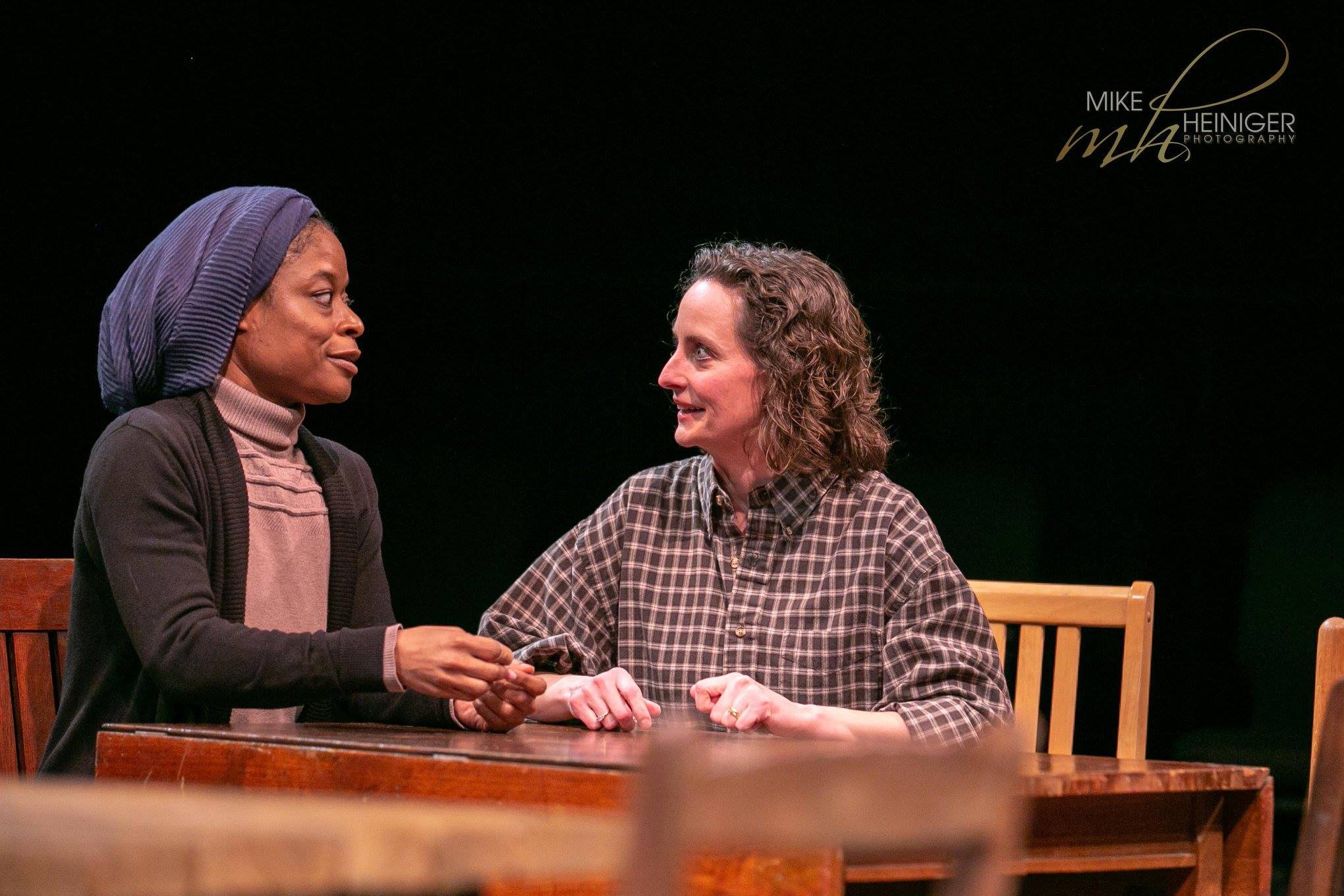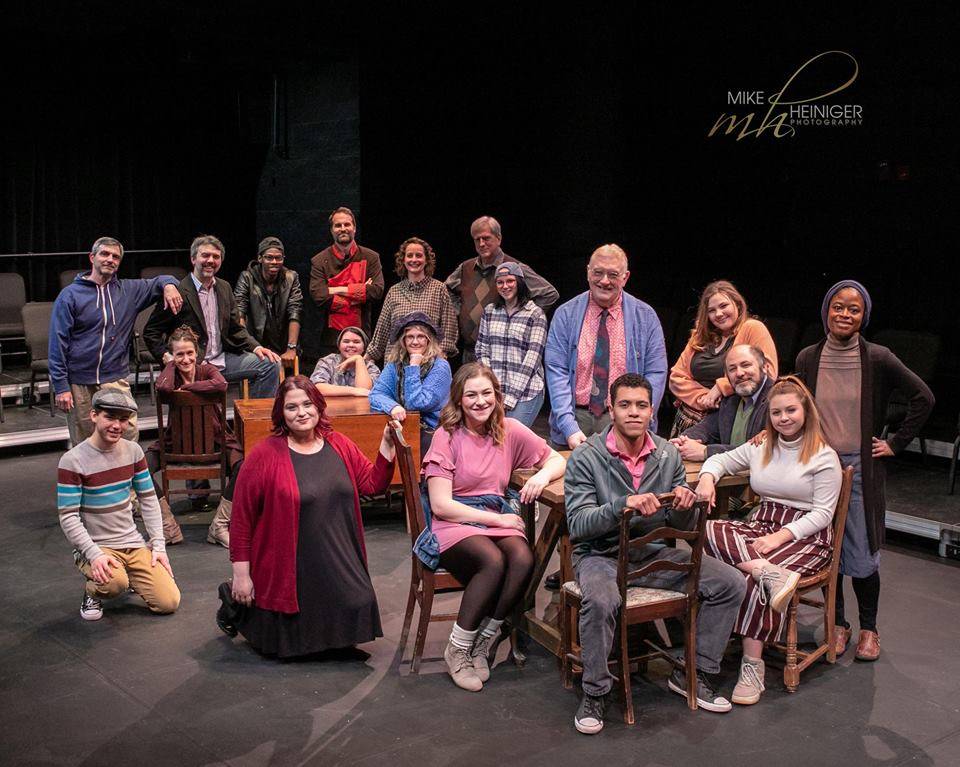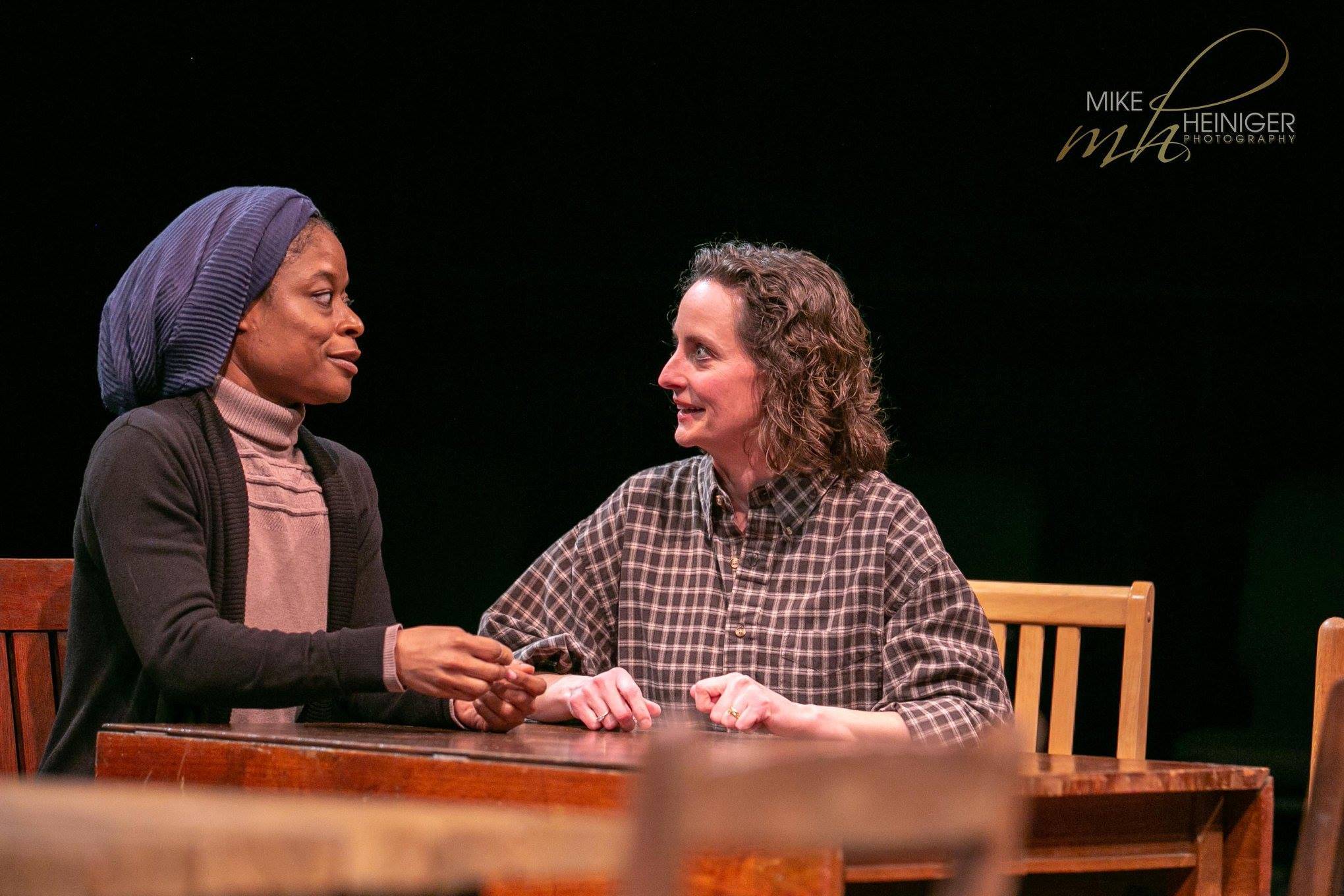Thornton Wilder’s 1938 play Our Town was presented this past weekend by the Champaign Urbana Theatre Company (CUTC) at Parkland’s Second Stage Theater. Our Town, decidedly stylized by as OuR ToWN, featured a collection of 20 actors which according to the Facebook event, “includes CUTC regulars, Parkland College Theatre students, local high school students, and theatre newcomers.” I found this description of the performers to be charming and accurate, as I believed this mix of individuals carried their own unique perspectives into this classic narrative that centers on community.
Described by Edward Albee as “…the greatest American play ever written,” the story
follows the small town of Grover’s Corners through three acts: “Daily Life,” “Love and Marriage,” and “Death and Eternity.” Narrated by a stage manager and performed with minimal props and sets, audiences follow the Webb and Gibbs families as their children fall in love, marry, and eventually – in one of the most famous scenes in American theatre—die.

Since its inception, Our Town has been performed plenty and often. To me, it’s one of those plays every high school ever has performed at least once. I don’t find this to be a negative thing, as there are obvious reasons why top produced high school shows finds such popularity and success. To be frank, the play is very simple and easy to produce. On a deeper level, it’s because Our Town carries a dreamlike nostalgia feeling. Playwright Thornton Wilder aided by the vision of director Mathew Green make it very clear in CUTC’s rendition: Grover’s Corners is a metaphor for your town.
Driving through our town on the way to OuR ToWN, my partner and I were caught by a freight train on Bradley Avenue and forced to take an unfortunate detour. A bit past curtain, we entered out of breath into Parkland’s Second Stage Theater. I noticed in-the-round seating with chairs for audience members on each wall of the theater, but quickly realized the farthest wall of chairs was dimly lit and near a costume rack, signaling that it was to be used by the performers.
There were audience members on 3 sides, with actors performing in a thrust middle area. Two unique audience rows were included in a L-shape very close to the minimal set pieces, two wooden tables with mismatched chairs. There were no props besides furniture, as this is a choice made by the script. Instead, actors made their ‘props’ clear by using mimery. There were several comedic moments created through prop humor, despite lacking physical objects. It’s an interesting phenomenon when that occurs because each member of the audience’s brain has to fill in the empty spaces where that physical object would be. Additionally, it takes skill from the actors to clearly define those empty spaces. It’s like charades, but live theatre.
Jordan Needham led the cast in the role of the Stage Manager. As the show relies heavily on metatheatrics, the Stage Manager serves as the omnipotent narrator. Needham smoothly guided the audience through the plot and portrayed the role with a relaxed and friendly demeanor. She was welcoming, and did a commendable job considering the lengthy and detailed monologues she delivered about the town of Grover’s Corners.
Maya Hammond and Wesley Bennett played Emily Webb and George Gibbs respectively, and brought bright, youthful energy to their roles. Other standouts among the cast included the pointed and strong Evelyn Reynolds as Mrs. Gibbs, and Susan Zielke as the frantic housewife Mrs. Webb.

Community was central to the plot, but I also found community to be central to the atmosphere of the theatre as well. Lighting, provided by Bob Weber, was focused not only in the playing space, but on the blocks of audience seating as well. During “Act I: Daily Life,” the lights made audiences able to see the faces of their fellow playgoers. Sitting in very the corner, I had a decent view of the rest of the audience and their reactions to the story. Though the audience lighting dimmed for “Act 2: Love and Marriage” and “Act III: Death and Eternity,” the intimate space allowed me to observe many smiling, laughing, and even empathetic faces. Seeing this narrative play out in our diverse community made my experience with it all the more special. The message this tale affirmed through Thornton Wilder’s ideas and director Mathew Green’s modern presentation that our town is indeed your town, too.
OuR ToWN
Champaign Urbana Theatre Company
March 14th to 17th
Parkland College’s Second Stage Theater
2400 W Bradley Ave, Champaign
Play description courtesy of Samuel French
Photos by Mike Heiniger Photography, provided by the Champaign Urbana Theatre Company








